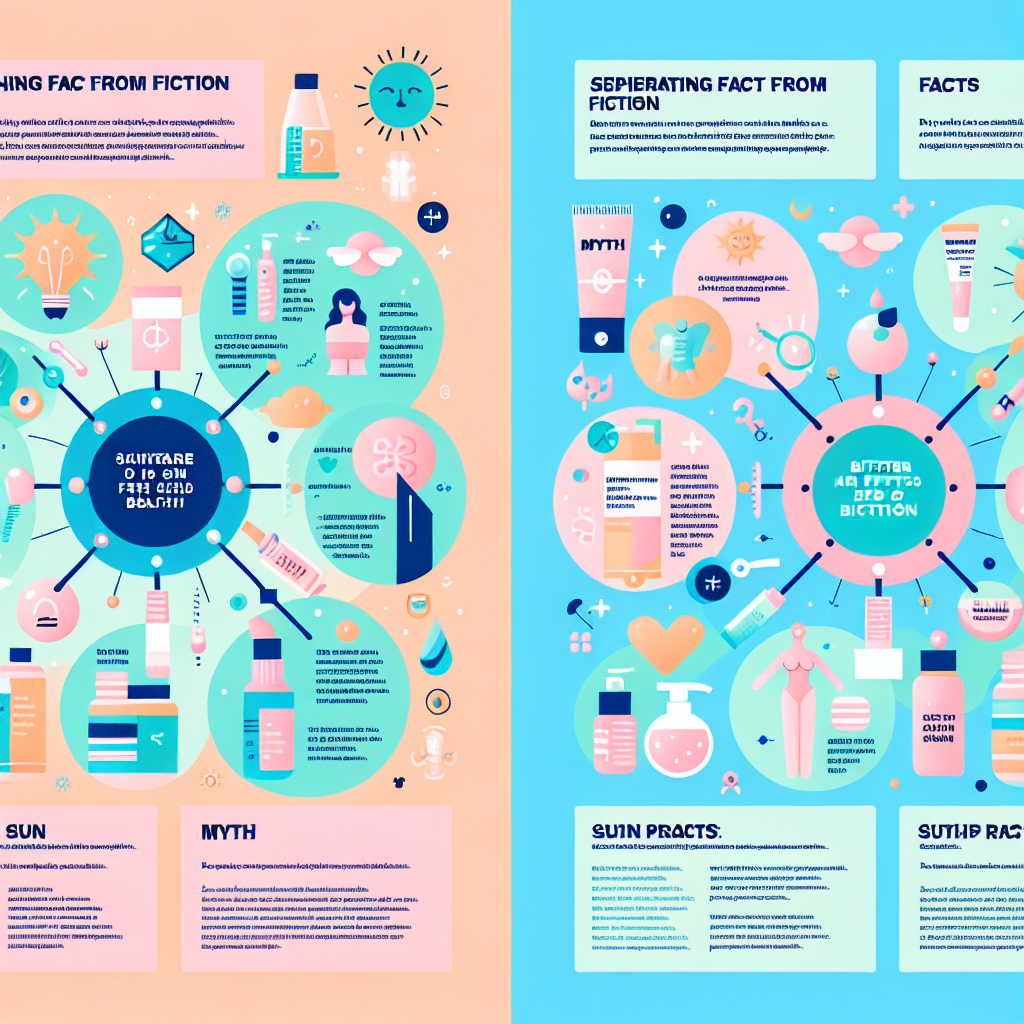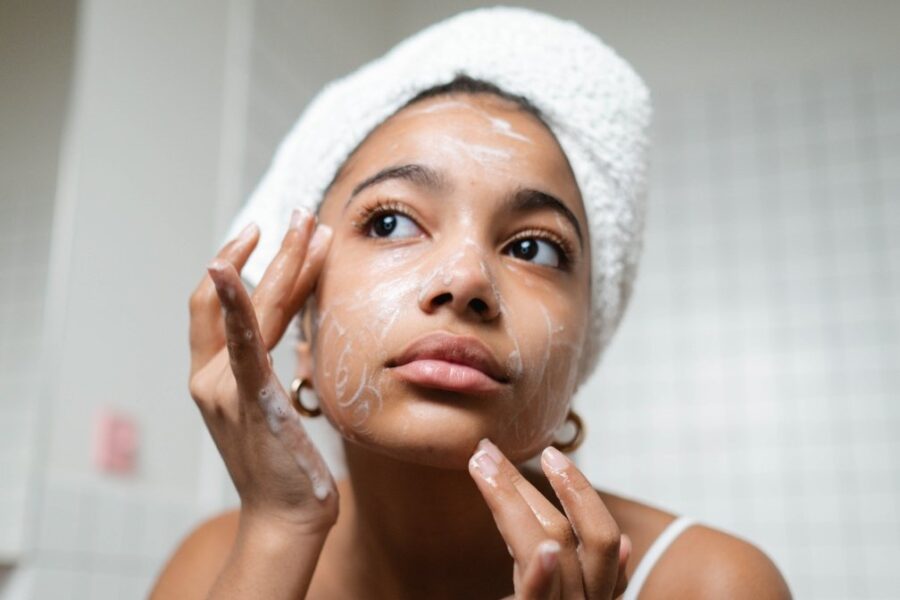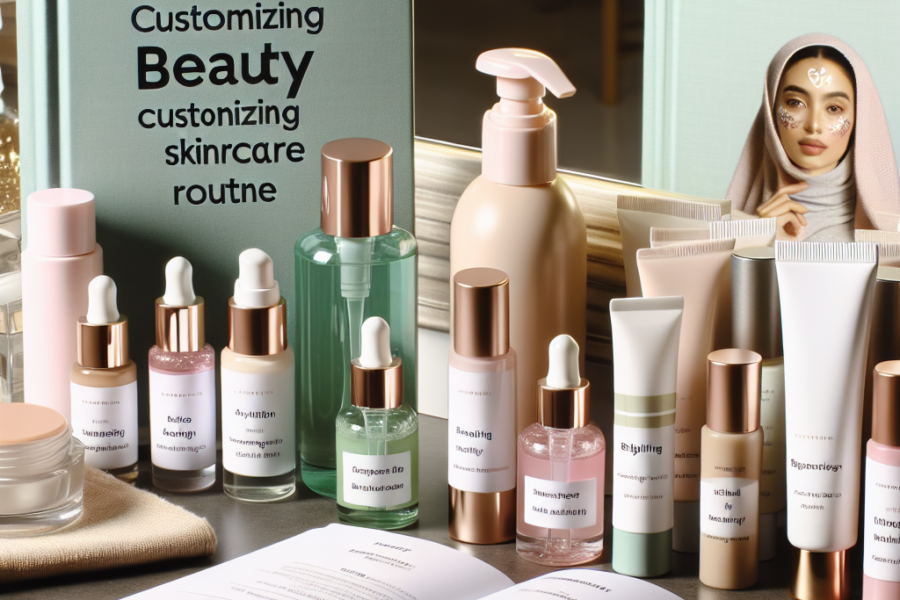With the rise of social media influencers and self-proclaimed skincare experts, the beauty industry has become inundated with myths and misinformation. From the latest trending ingredient to the perfect skincare routine, it can be overwhelming to navigate through all the conflicting advice. In this article, we will debunk some common skincare myths and separate fact from fiction to help you achieve your best skin.
Myth #1: Natural ingredients are always better
One of the most pervasive myths in skincare is that natural ingredients are always better for your skin. While it’s true that some natural ingredients can be beneficial, not all natural skincare products are created equal. Just because an ingredient is derived from nature doesn’t mean it is safe or effective for use on your skin.
In fact, there are plenty of natural ingredients that can be irritating or even harmful to the skin. For example, essential oils are often touted for their aromatherapy benefits, but they can also be sensitizing and irritating when applied topically. Other common natural ingredients like citrus oils, witch hazel, and peppermint can also cause irritation and allergic reactions in some individuals.
On the other hand, synthetic ingredients are often unfairly demonized in the skincare industry. Many synthetic ingredients are rigorously tested for safety and efficacy and can actually be gentler on the skin than some natural alternatives. Ingredients like hyaluronic acid, niacinamide, and peptides are synthetic compounds that have been scientifically proven to improve the skin’s appearance and function.
Ultimately, the best approach to skincare is to focus on the ingredients themselves rather than whether they are natural or synthetic. Look for products that are backed by research and formulated for your specific skin concerns, rather than relying on the idea that natural is always better.
Myth #2: You should exfoliate every day
Exfoliation is an important step in any skincare routine, as it helps to remove dead skin cells and impurities from the skin’s surface. However, exfoliating too often can actually do more harm than good. Over-exfoliation can strip the skin of its natural oils, leading to dryness, irritation, and even breakouts.
The frequency of exfoliation should be tailored to your skin type and concerns. For most people, exfoliating 2-3 times a week is sufficient to maintain healthy skin. If you have sensitive skin or are using a strong exfoliating product like a chemical peel, you may need to exfoliate less frequently.
It’s also important to use the right type of exfoliant for your skin. Physical exfoliants like scrubs can be too harsh for some skin types and can exacerbate issues like sensitivity and inflammation. Chemical exfoliants like alpha hydroxy acids (AHAs) and beta hydroxy acids (BHAs) are gentler and more effective at removing dead skin cells without causing irritation.
Myth #3: Oily skin doesn’t need moisturizer
Many people with oily skin skip moisturizer in their skincare routine because they believe that it will make their skin even oilier. However, this couldn’t be further from the truth. Moisturizer is essential for all skin types, including oily skin.
When the skin is dehydrated, it can actually produce more oil to compensate for the lack of moisture. This can lead to a vicious cycle of excess oil production and clogged pores. By using a lightweight, non-comedogenic moisturizer, you can help balance the skin’s oil production and prevent breakouts.
Look for moisturizers that are oil-free and contain ingredients like hyaluronic acid or glycerin, which are lightweight and non-greasy. Avoid heavy creams and rich oils, as they can clog pores and exacerbate oiliness.
Myth #4: The more products, the better
In the age of multi-step skincare routines and 10-step beauty regimens, it can be tempting to pile on product after product in the hopes of achieving perfect skin. However, using too many products can actually do more harm than good.
Overloading your skin with multiple products can lead to product buildup, irritation, and allergic reactions. It can also make it difficult to pinpoint which products are working for your skin and which ones are causing problems.
Instead of using a long list of products, focus on a few key products that target your specific skin concerns. A basic skincare routine should include a gentle cleanser, moisturizer, sunscreen, and any treatment products like serums or exfoliants. By keeping your routine simple and streamlined, you can better monitor how your skin responds to each product.
Myth #5: Sunscreen is only necessary on sunny days
One of the biggest skincare myths is that sunscreen is only necessary when it’s sunny outside. In reality, UV rays can penetrate through clouds and windows, meaning that sun protection is essential every day, regardless of the weather.
UV exposure is the number one cause of premature aging and skin cancer, so it’s important to wear sunscreen year-round to protect your skin. Look for a broad-spectrum sunscreen with an SPF of 30 or higher and apply it every morning as the last step in your skincare routine.
Don’t forget to reapply sunscreen throughout the day, especially if you are spending extended periods of time outdoors. UV rays can break down the sunscreen’s effectiveness over time, so it’s important to reapply every 2 hours or after swimming or sweating.
Myth #6: Expensive skincare products are always better
Another common misconception in the skincare world is that expensive products are always better than drugstore alternatives. While some high-end skincare brands do offer effective products, price is not always an indicator of quality.
Many drugstore brands offer affordable skincare products that are formulated with the same active ingredients as their high-end counterparts. In fact, some drugstore products may even outperform luxury products in terms of efficacy and value.
When choosing skincare products, it’s important to focus on the ingredients and formulation rather than the price tag. Look for products that are backed by research and tailored to your skin concerns, regardless of whether they are budget-friendly or high-end.
Myth #7: You can shrink your pores
Many people are troubled by the appearance of enlarged pores on their skin, leading them to seek out ways to shrink them. While it’s not possible to physically shrink the size of your pores, there are ways to minimize their appearance.
Pore size is largely determined by genetics, so you may not be able to change the size of your pores permanently. However, keeping your skin clean and exfoliated can help prevent debris and oil from getting trapped in your pores, making them appear larger.
Using products that contain ingredients like salicylic acid or retinol can help to unclog pores and improve the overall texture of your skin. Regular exfoliation can also help to remove dead skin cells and keep pores clear.
Myth #8: Skincare products can erase wrinkles
As much as we wish it were true, skincare products cannot magically erase wrinkles or prevent aging altogether. While some ingredients like retinol, vitamin C, and peptides can improve the appearance of fine lines and wrinkles, they cannot turn back the hands of time completely.
Preventing and reducing wrinkles requires a multi-faceted approach that includes lifestyle factors like diet, exercise, and sun protection in addition to skincare products. Protecting your skin from UV rays, staying hydrated, and avoiding smoking can all help to slow down the aging process and keep your skin looking youthful.
If you are concerned about wrinkles and signs of aging, consider consulting with a dermatologist to discuss treatment options like chemical peels, injectables, or laser therapies. These medical interventions can provide more dramatic results than skincare products alone.
Myth #9: DIY skincare is always safe
With the rise of internet beauty influencers and social media DIY tutorials, many people have turned to homemade skincare remedies as a more natural alternative to store-bought products. While some DIY skincare recipes can be effective, not all of them are safe or beneficial for your skin.
Many DIY skincare ingredients like lemon juice, baking soda, and apple cider vinegar can be harsh and irritating when applied directly to the skin. These ingredients can disrupt the skin’s natural pH balance, strip away the skin’s protective barrier, and cause redness and inflammation.
If you are interested in making your own skincare products, it’s important to do your research and use caution. Stick to simple, gentle ingredients like honey, oats, and yogurt, and always perform a patch test before applying a new DIY product to your face.
Myth #10: Skincare products work immediately
In a world of instant gratification, many people expect skincare products to work miracles overnight. However, skincare is a long-term commitment that requires patience and consistency to see results.
Most skincare products, especially those that target specific skin concerns like acne or hyperpigmentation, require time to work. It can take several weeks or even months of consistent use before you start to see noticeable improvements in your skin.
When starting a new skincare product, it’s important to give it time to acclimate to your skin and work its magic. Don’t be discouraged if you don’t see immediate results – stick with your routine and trust the process.
Conclusion
In conclusion, the world of skincare is filled with myths and misconceptions that can be confusing and misleading. By separating fact from fiction and focusing on evidence-based skincare practices, you can navigate through the noise and achieve healthy, glowing skin.
Remember, skincare is not one-size-fits-all, and what works for one person may not work for another. It’s important to listen to your skin, consult with a dermatologist if needed, and develop a skincare routine that is tailored to your unique needs and concerns.
By debunking common skincare myths and educating yourself on the science behind skincare, you can make informed decisions about your skincare routine and achieve the best results for your skin. Take the time to research ingredients, experiment with different products, and invest in your skin’s health – your skin will thank you for it in the long run.








Leave a Comment